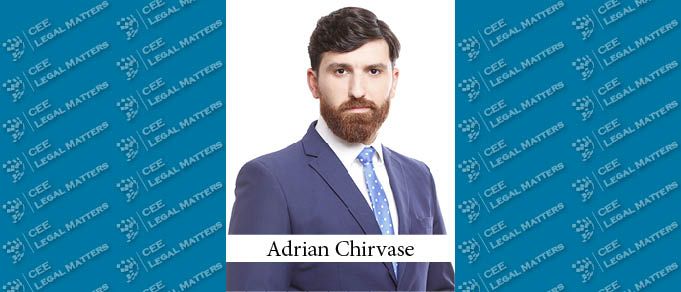The phenomenon of tax evasion is present all around the globe regardless of whether we look at “civilized” or developing countries, being one of the most widespread and notorious form of financial crimes, responsible for a significant part of the shadow economy.
According to a report published by the International Monetary Fund in 2008, Romania is no exception, being one of the top four European Union countries with the biggest underground economies, recording a quota of 26.3% of its gross domestic product as of 2016.
In this context, all States have put a significant effort into the fight against tax evasion, which has become a constant issue of the modern age, being at the same time accentuated by public “scandals” that end up having a global effect, as are the likes of Panama and Paradise Papers.
In this constant tendency of increasing the fight’s against tax evasion intensity, Romania did not shy from following the rest of the States, showing its power to adapt to the global trends (compelled, of course, by the need to increase its tax collection rate) by hardening its criminal sanctions for tax evasion crimes, which, at the present, can be as high as 15 years of imprisonment (if the damage consists of more than 500.000 euro) or even more in special circumstances.
Nevertheless, even though one might assume that increasing the sanctions for tax evasion would translate into a reduction of this phenomenon in Romania, things did not go as planned, no significant decrease (or even a decrease at all) of the underground economy being registered. On the contrary, according to a statement made by the Finance Minister in early 2020, tax evasion has become an issue of national security.
Moreover, this hardening of sanction did not result into a better State budget revenue collection either, the recovery of damages resulted from tax evasion seeing no improvement at all.
Faced with this reality, at the end of 2020, an amendment (initiated as far back as 2017) to Law no. 241/2005, regarding the prevention and fight against tax evasion, was successfully passed by the Chamber of Deputies.
The new amendment sees, among other things, a comeback to the previous version of the Law, before being revised on the first of February 2014 (concurrent with the coming into force of the new penal codes), which gave the Courts the possibility to sanction those accused of tax evasion with criminal fines if the damages did not surpass 100.000 euro and were repaid in full by the accused. Also, as a novelty, if the damages caused by tax evasion do not exceed 50.000 euro and are fully repaid by the accused, a criminal fine will be imposed in all cases.
By far, though, the most important change that the amendment brings is represented by the addition of a new impunity provision, according to which those accused of tax evasion will not be sanctioned provided they repay the damages, increased by 20% plus interest, before the pronouncement of a definitive sentence.
WHO BENEFITS FROM THOSE CHANGES?
Numerous voices already expressed their disapproval regarding the amendment, in the sense that law was changed specifically to aid a certain category of persons, profiting to those that are currently subject to the provisions of the Law no. 241/2005 and who will dodge being held criminally responsible as a result of the introduction of the new impunity provision.
Nevertheless, not disregarding the aforementioned criticism, it has to be observed that, although some might indeed avoid their criminal responsibility, such an avoidance will also be considerably pricey, as it could materialize only after the damages are paid in full, supplemented by 20% plus interest. Thus, from a financial perspective, the advantages of such a change of policy are indisputable, the difficulties encountered by the authorities in the process of recovering of damages resulted from tax evasion being widely known. As such, the voluntary repayment of the damages, supplemented by 20% increase plus interest, should be gladly received.
Moreover, those changes can also benefit the Ministry of Justice, as the usage of the new provisions by those accused of tax evasion could lessen the burden of tax evasion trials and investigations expenses, which will naturally alleviate the pressure placed by those on the Ministry’s budget.
At the same time, considering the high volume of tax evasion cases, the new amendment might help reduce the over-solicitation of both Courts and law enforcement, since the new provisions allow the repayment of damages to be made right from the inception of the criminal investigations.
Last but not least, the new version of the tax evasion law could also come as a much-needed aid in combating the oversaturation of penitentiaries and detention centers.
OTHER JURISDICTIONS
Moving forward, it has to be that this legislative initiative represents neither an absolute novelty, nor an international precedent, as similar strategies for the recovering of damages resulted from defrauding the national budget by tax evading can also be found in other jurisdictions, some adequate examples in the sense being:
- the Spanish legislation, which provides an impunity provision for those who “wholly acknowledge the tax liability and pa[y] it in full, before being notified by the tax authorities” or
- the Italian legislation, which provides an impunity provision that can apply to certain crimes considered to be minor in nature (which have a high correspondence rate with the actions that are incriminated by Law no. 241/2005 in Romania), provided that the damages be repaid in full before the commencement of the first instance court debates.
NARROW CHANCES OF COMMENCEMENT
Although the legislative initiative was adopted by the Parliament and was sent to the President for promulgation, the changes made in the anti-tax evasion strategy does not seem to be welcomed by the other branches of government, as both the executive and the judicial powers, as well as the Ombudsman, brought a series of unconstitutionality claims before the Constitutional Court, concerning, in essence, the lack of clarity, precision and predictability of the new law and, at the same time, suggesting a common will to block the changes of policy regarding tax evasion.
Nevertheless, the Constitutional Court rejected those claims two weeks ago, finding that the aforementioned criticism were unfounded and, thus, that the provisions set in the amendment of Law no. 241/2005 are constitutional.
The main detail that stands from entire legislative process of amending the tax evasion legislation is, without any doubt until this point, the inexistence of a common will at the State level in respect to the strategy that must be adopted for the countering of tax evasion. Any other aspects will most likely be clarified at the time of publication of the Constitutional Court decision’s ratio decidendi.
Anyway, considering that the Constitutional Court’s decisions are definitive and generally mandatory, the legislative proceedings will continue, the next stop being at the President of Romania which has the constitutional prerogative to send the legislative project (only once) back to the Parliament for reexamination.
It remains, therefore, to be seen how the President of Romania will ensure the balance between the three powers of government, as the President’s decision will most likely adopted after the publication of the Constitutional Court’s decision in the Official Journal of Romania.
CONCLUDING REMARKS
While, indeed, in the current social context, the public tends to be particularly hostile towards financial crime, at the same time, the objective reality is that high prison sentences are not solving the problematics of recovering of damages resulted from those crimes. Meanwhile, the phenomenon of tax evasion annually deprives the State’s budget of considerable sums, placing a negative mark on the budget deficit and affecting the economic stability of the country.
As such, what’s definitely certain is that, in one way or another, the State’s recovery of damages policy in respect to tax evasion needs to be fundamentally changed in order for its efficiency to increase.
By Adrian Chirvase, Partner, and Ioan Mateescu, Attorney at Law, Popescu & Asociatii


